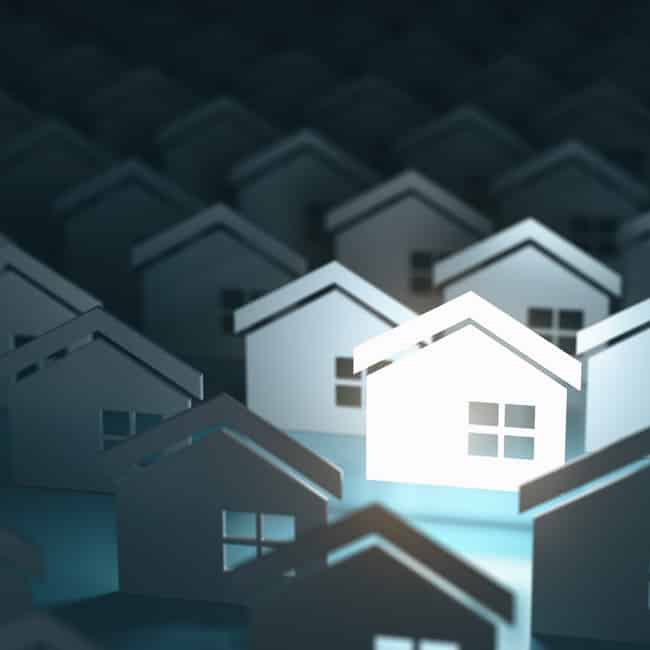The Truth About Zoopla Valuations and House Price Estimates: A Guide
If you want to sell your house you might decide to get a Zoopla valuation for it. If you do, here’s what you need to know about Zoopla valuations before you sell your house.
What are Zoopla Valuations?
Zoopla offers not just one but two ways to value your house. Firstly, they offer free agent valuations where an agent inspects your house. Secondly, they offer estimated valuations. An estimate is essentially an automated valuation of what your house is worth. You simply tap in your address and Zoopla’s automated system provides an estimated valuation with an estimated price range of what your house is worth.
Zoopla is now a big name in the property business. So their estimated valuations carry a lot of weight. But it’s important to know exactly what Zoopla valuations are and how they work.

Sell Your Investment Property in Days
Any condition, tenanted or vacant, for it’s full market value. Offers in 3-5 days. No sale, no fee.
Are Zoopla Valuations Accurate?
If the question is, 'how accurate are Zoopla estimates?', the best answer is that Zoopla's estimated valuations can be pretty accurate. Or they can be very inaccurate. Or they can be somewhere in the middle!
Your house might be worth a lot more than Zoopla estimate it is. Or your house may be worth a lot less than Zoopla estimate it is. If you want to sell your house it’s best not to get too excited, or be too disappointed, by Zoopla’s estimate.
There have been reports in the past where house owners have complained that their Zoopla estimated valuation has been way out... in one case by up to £100,000 out!
How Zoopla Valuations Work
Zoopla says that their estimated valuation is their calculation of what a property could be worth. They say it’s designed to help sellers decide the asking price, and buyers decide what they could offer, and it is not a formal valuation.
Zoopla says these estimated valuations are based on region, property type and asking prices of similar properties in your local area.
Zoopla’s system is powered by Hometrack, a provider of automated property valuations which is part of Zoopla. The system uses historic data and current local trends including previously sold prices of the property, changes in the market value of similar properties sold nearby, the type, age and size of the property (eg. number of bedrooms), the state of the local and national sales market and local area data like crime rates and schools.
The system uses data from third-party, public organisations including HM Land Registry, Registers of Scotland, Royal Mail and Ordnance Survey. Incidentally, Zoopla points out that data is richer in England and Wales than in Scotland, where a narrower range of data is available, and in Northern Ireland, where it is not published. They say this makes their estimates more accurate in England and Wales than they are in Scotland and Northern Ireland
Here’s more information from Zoopla about their data.
What are the Problems with Zoopla Valuations?
The important thing to remember with Zoopla estimated valuations is that they are automated estimated valuations. Like all other automated valuations, they use a computer algorithm which crunches data to estimate what your house might be worth.
These kinds of estimates don’t (and can’t possibly) take account of all the variables that an estate agent or potential buyer viewing your house would take account of. Automated valuations can’t take account of the data they don’t have access to. They can’t take account of the human whims and foibles that come into play when a real person views your house and decides how much it is worth to them. They can’t account for factors such as décor, the view, the parking, whether a prospective buyer can raise the money or has a house to sell or not, or how serious (or otherwise) buyers they are.
Zoopla themselves openly admit that their calculations are estimates only and they are not the same as property valuations carried out by estate agents who can take into account more property information, including features, exact location and market conditions.
If you don’t agree with Zoopla’s estimate you can ask for it to be removed.
It’s easy to test the accuracy of Zoopla estimated valuations for yourself. Pick a property that is up for sale on a property site. Or find the actual selling price of a property that has recently sold using a site like Nethouseprices. Then carry out a Zoopla estimate for it and see if and by how much they are different!
How to Accurately Value your House
If you want to sell your house then it is essential to value it accurately. But valuing your house accurately can be tricky and many factors need to be considered. So it’s important not to rely on just one estimate or valuation, whether from Zoopla or anyone else, before deciding.
Here are some methods you can use to get an idea of how much your house is worth:
- Use automated valuation tools and online price calculators as a guide, and a guide only. These can include a Zoopla estimated valuation and automated valuation tools offered by other providers.
- Ask several estate agents to come round in person and give you a valuation. Ask them for an estimated market value as well as a suggested asking price, which are not necessarily the same thing.
Zoopla themselves say that it is good practice to get at least three estate agents to value it, even if you’ve already used the Zoopla house prices estimate tool.
- Consider other methods of getting a valuation for your house too. For example, you could ask a house buying service to give you the best price for fast sale valuation of your house.
- Do your own research. Find out what similar properties nearby have sold for recently. Look for similar properties nearby that are for sale but which haven’t sold – bearing in mind that might mean the asking price is too high.
It’s sensible not to take automated valuations too seriously. Don’t make decisions based on an estimated valuation of this type alone. Your house may well not be worth anything like the automated valuation. Then again, your house could be worth much more.
Whatever estimated valuations might say, your house is really worth what a willing and able buyer will pay for it when it goes on the market.
Here’s a useful article which gives more detailed information to help you get an accurate valuation of how much your house might be worth: How Much Is My House Worth? A Guide To Valuing Property



